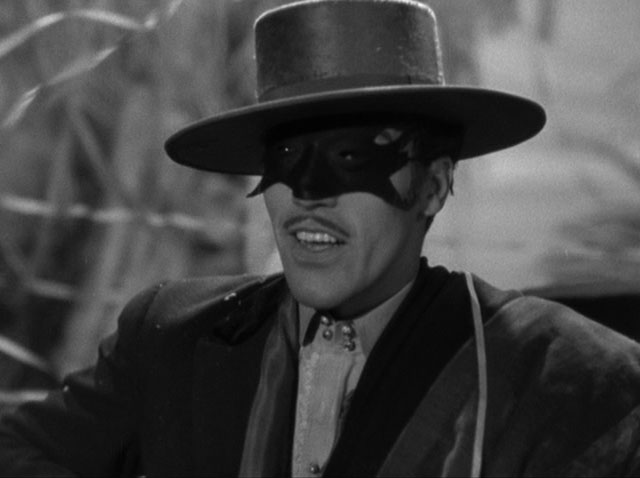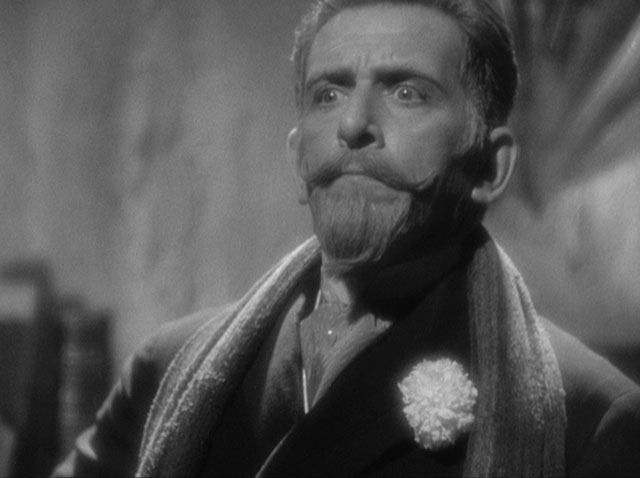The bookend segment implies that the movie will be more fun than it is, opening during “Carnival Week” in Spain with the chief of police telling his men to shoot criminals during the festivities rather than arrest them, so the jail doesn’t overfill. Then straight into a party scene where masked Antonio (Cesar Romero, recently of The Thin Man) glimpses masked Marlene Dietrich. It immediately recalls the similarly-streamer-filled party in Dishonored with a masked Victor McLaglen (who has a much better smile than Cesar does). It’s a great-looking movie, if less gloriously so than the other Sternbergs I’ve been watching. Its best moments recall those earlier films: characters trapped together on a train (Shanghai Express), a man obsessed with Dietrich to his own humiliation and ruin (The Blue Angel) and all the carefully-composed obscured-vision shots. But it doesn’t add much original flavor of its own (besides a good dueling scene), and the middle of the movie drags from its uninteresting story.


Cesar trails Dietrich to her house but can’t get in, so he meets buddy Pasqual (Lionel Atwill, in the To Be Or Not To Be acting troupe) and listens to him talk for the majority of the movie. Pasqual recalls meeting Dietrich on an avalanche-bound train, giving money to her and her mother (Alison Skipworth of the similarly-titled Satan Met a Lady), then watching her escape with another man. This happens again. Then again and again. Then he rapes her, I think. The point of his story is that Cesar needs to stay away from the girl, but all I’m getting is that Pasqual is extremely pathetic. Cesar must’ve gotten that too, because he shows up at her house again. Pasqual sees, challenges him to a duel, then fires into the air, a suicide move. Dietrich pulls a total Casablanca on Cesar, getting travel papers for both of them (from cameo-governor Edward Everett Horton) then hopping off the train.
L-R: Pasqual, Marlene, Cesar:

Guest star E. Everett:

C. Silver:
The film is neither as warm as Morocco nor as accessible as The Blue Angel. If it is perhaps the most perfect film ever made in some ways, its very precision conveys a coldness, a diamond-like hardness; the romanticism of Morocco transformed into cynical introspection and fatalism. If Sternberg is any closer to understanding Dietrich, he is unwilling to solve the puzzle for the audience; the film remains one of the most beautifully realized enigmas in the history of the cinema.
Marlene with a duck in a basket:

from A. Sennwald’s original NY Times review:
The talented director-photographer, in The Devil Is a Woman, makes a cruel and mocking assault upon the romantic sex motif which Hollywood has been gravely celebrating all these years. His success is also his failure. Having composed one of the most sophisticated films ever produced in America, he makes it inevitable that it will be misunderstood and disliked by nine-tenths of the normal motion picture public. . . . a heartless parable of man’s eternal humiliation in the sex struggle. As Don Pasqual dances foolishly at the bidding of the young woman who has him biologically trapped, we begin by laughing with the director at the ludicrous spectacle and end by suspecting that the joke has been a grisly one.
